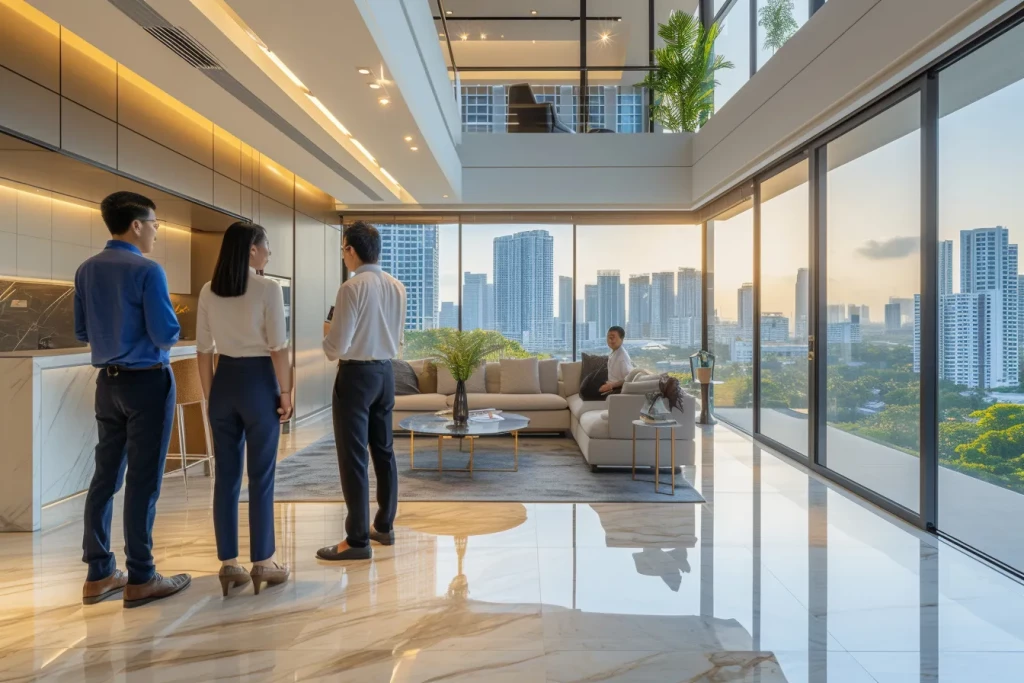Impact of visa-free policy and Chinese buyers on the Thai condo market
07/02/2024Thai real estate market booms
Thailand's condominium market is currently experiencing rapid growth, mainly due to the country's visa-free policy and the influx of Chinese investors. These factors make Thailand a popular destination for foreign real estate investment.
Visa-free policy: a catalyst for real estate investment
The visa-free policy has greatly facilitated access to the Thai real estate market for Chinese nationals. Indeed, this measure allows Chinese investors to travel to Thailand without having to apply for a visa in advance. This has made Thailand more attractive to Chinese investors looking to buy property abroad.
Extended vacations for potential buyers
This policy also encourages Chinese tourists to spend more time in Thailand, giving them the opportunity to discover the country and its real estate market. Many of them end up falling in love with Thailand and decide to invest in a property there as a second home or rental property.
Influx of Chinese investors into the Thai market
Chinese buyers are currently the biggest foreign investors in the Thai property market. In fact, around 40% of foreign property purchases in Thailand are made by Chinese nationals. This strong interest in Thai property is due to a number of factors.
Attractive prices for the Chinese
One of the main advantages of property investment in Thailand for the Chinese is the cost difference between the Chinese and Thai property markets. Housing prices in Thailand are often much more affordable than in China, which attracts many Chinese investors.
- New condos are available from 50,000 euros, making them an affordable investment for many investors.
- The average annual growth rate for real estate in Thailand is around 5%.
Safety and quality of life
Thailand offers an excellent quality of life for residents and expatriates alike. Security is a major issue for Chinese buyers seeking to protect their investments and provide a pleasant living environment for their families.
A dynamic, growing economy
The Thai real estate market is also benefiting from the country's economic growth, supported by a flourishing tourism sector and constantly improving infrastructure. These factors are boosting foreign investors' confidence in the Thai economy and the local real estate market.
The Thai condo market in the face of this trend
This upward trend in Chinese real estate investment in Thailand has led to an increase in demand for Thai condominiums. Local real estate developers have been quick to adapt to this new clientele, building more quality condos to meet the specific tastes and needs of Chinese buyers.
Developing infrastructures and services around condos
To meet the expectations of Chinese buyers, the new condominiums offer high-end services such as fitness facilities, swimming pools and green spaces. What's more, developers pay particular attention to proximity to public transport, shopping centers and international schools to facilitate residents' daily lives.
Secondary condo market also affected
In addition to the market for new condos, Chinese investors are also showing increasing interest in the secondary market for Thai condos. This trend is stimulated by the availability of ready-to-live-in properties, offering fast and attractive rental returns.
In conclusion, the visa-free policy and the influx of Chinese buyers have had a significant impact on the Thai condo market. Growing demand has led to an increase in supply, improvements in the services offered and in the quality of construction. Attractive in terms of cost and benefiting from a dynamic economy, the Thai real estate market should continue to attract Chinese investors for years to come.







